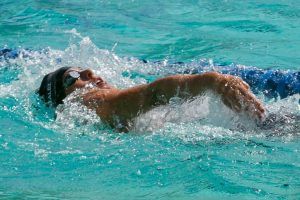
10 Motivational Swimming Quotes to Get You Fired Up
Looking for some awesome swim quotes? Give this list of motivational swimming quotes a look the next time you need to rock and roll in the pool.
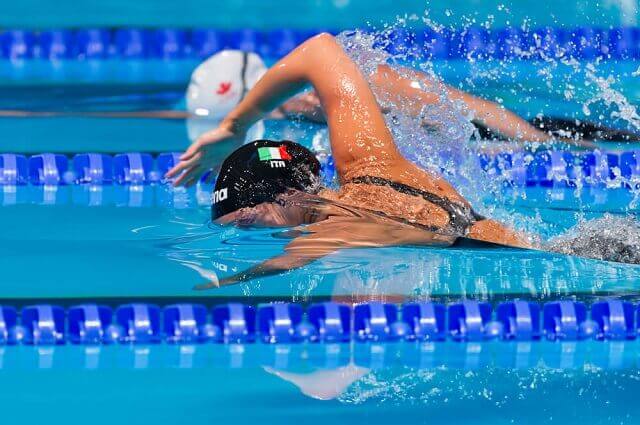
When swimmers want to get the edge in the pool sometimes it’s the easiest things that get overlooked. Here are 3 proven and powerful tips for swimmers to dish out punishment on their best times this season.
Improvement in the water doesn’t always have to come by pounding more meters and yards. Or swimming with such high intensity that you find yourself in the pool gutter face-to-face with what you had for lunch earlier.
Yes, hard work is important. And critical.
But sometimes we don’t want or need to do more hard work in order to improve.
Here are the three easiest ways to swim faster and have the best season of your life:
Sleep is absolutely critical for human performance. It doesn’t matter what your goals are in the pool, we need sleep to be able to function on a basic level over the course of the day.
Tack on the demands of high performance training and the importance of having sufficient sleep becomes even more important. Despite what all the supplements and “all-natural” (Ha!) energy drinks promise you, still the best way to recover from intense physical effort is a heavy dose of sleep.
But with all the demands on our time, isn’t it easier to just crush a couple cups of coffee or other pre-workout stimulant and charge through your day like a grumpy, dry-eyed zombie?
After all, does our performance really suffer that much when we are a little bit sleep deprived?
Stanford’s Cheri Mah’s research into sleep extension with Cardinal athletes has provided a powerful glimpse into what happens when swimmers get more sleep than what is typically prescribed (the usual “8 hours”).
Five Cardinal swimmers were followed for two weeks, sleeping as what was usual. For the next 6-7 weeks, however, they extended their nightly dose of sleep up to 9-10 hours.
The results:
If someone told you that you could drop three quarters of a second on your first lap of your best event just by sleeping more, would that be something you would be interested in?
Heck yeah it would!
That type of improvement is a sort of gain that you would tie to months or years of training, not merely spending more time curled up under the sheets.
Do what you need to do to make your schedule receptive to getting more Z’s, and do it guilt-free, knowing that you are powering your performance in the water.
It never ceases to amaze me how often swimmers come to practice with nothing in mind for what they want to achieve that day in the water. The attitude is generally that, “Well, Coach writes the workouts and I do them. End of story.”
While this may be true in a broad sense, it is also up to you to make the most of your time in the water.
Look:
You know what you want to achieve this season. That big, awesome goal of yours that you dream about when you should be studying, relive in your mind while hanging out with friends, and fantasize about in bed.
And, if you have put in the tiny bit of legwork necessary in order to break down that goal you know what has to be done in order to make that goal come to fruition. (“You mean wishing for it doesn’t make it so…?”)
The training goals, the things you do on a daily basis, are what will send you hurtling full-speed towards accomplishing your end of season targets.
Things like:
And so on.
The side benefit of having these intra-session goals is that it keeps you focused.
There are fewer things less pleasurable than being bored and unfocused at practice. Going through the motions with little interest or attention paid to what you are doing is nine pounds of not-fun in a five pound bag.
You got three minutes a day to spare?
Probably not, right?
But what if I told you that with those three minutes you could…
Yup, all of those things and more can all be yours when you spend a handful of minutes writing out your workouts.
Yeah, I get it—the last thing you probably want to do when you get home after a long day of two swim workouts, a full day of classes, and trying to think of clever things to write on Twitter is to write things on paper (with a pen, no less!).
But spend just a couple mildly therapeutic minutes rehashing your workout and you’ll swim smarter (and eventually, much faster).
The temptation to go for the latest supplement or sweet new piece of tech gear as a quick-fix for our swimming is hard to resist. They are just so shiny, after all!
But at the end of the day, the things that can dramatically improve our swimming don’t require an FDA approval sticker or spending more time in the pool or even working harder.
Sleep more. Have training goals. Track your training.
Rinse and repeat, and those best times of yours will never know what hit them.

Olivier Poirier-Leroy Olivier Poirier-Leroy is the founder of YourSwimLog.com. He is an author, former national level swimmer, two-time Olympic Trials qualifier, and swim coach.
✅ Free shipping on Orders over $49
✅ Price Match Guarantee
✅ Best selection of gear for training and competition
✅ Fast and Easy Returns

“This is the best book I have ever seen concerning mental training.” — Ray Benecki, Head Coach, The FISH Swim Team


Looking for some awesome swim quotes? Give this list of motivational swimming quotes a look the next time you need to rock and roll in the pool.
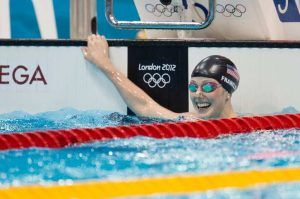
Missy Franklin’s book Relentless Spirit details the triumphs and tribulations on the path to becoming an Olympic champion. Here is a review of the book, along with key takeaways, quotes and highlights…
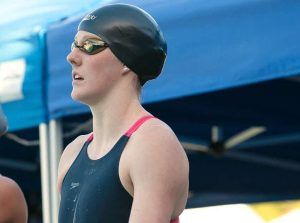
American swim star Missy Franklin captivated the world during her reign as one of the best swimmers on the planet. Here’s how she built her self-confidence going into big swim meets.
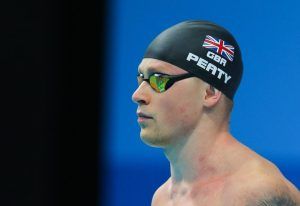
If you want to swim faster and maximize your preparation in the water, make sure you are focused on real solutions and not fake problems.
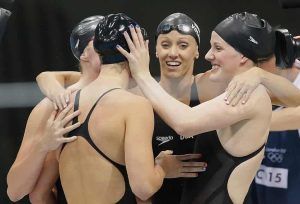
Ever wondered why some swimmers always swim ridiculously fast on relays? Here’s how the kind of motivation you use behind the blocks influences how you perform in the water.
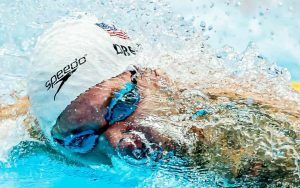
This is the ultimate guide for helping age group swimmers get highly motivated. You are going to learn about some proven techniques and tools that you can start using today to light your motivation on fire. (And keep it burning bright after that first burst of motivation fades away.) If
SITE
SHOP
GUIDES

LANE 6 PUBLISHING LLC © 2012-2025
Join 33,000+ swimmers and swim coaches learning what it takes to swim faster.
Technique tips, training research, mental training skills, and lessons and advice from the best swimmers and coaches on the planet.
No Spam, Ever. Unsubscribe anytime.
